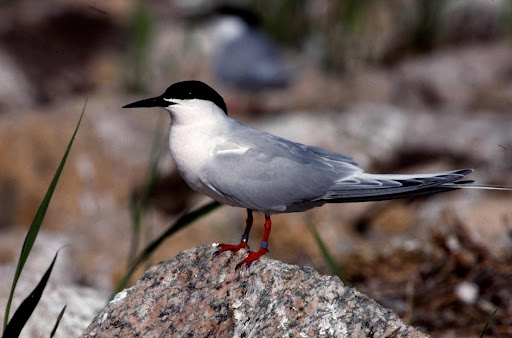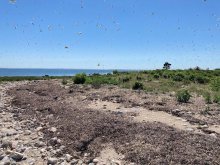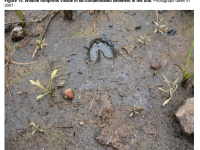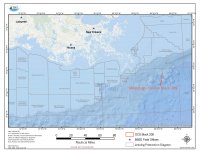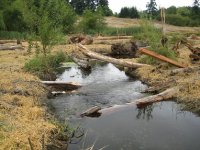Visioning a More Climate Change-Resilient Ram Island
October 18, 2023
The Trustees for the 2003 Bouchard Barge 120 (Buzzards Bay) oil spill — NOAA, the U.S. Fish and Wildlife Service, Commonwealth of Massachusetts, and State of Rhode Island — are responsible for restoring leading natural resources and public uses of Bay resources impacted by the spill. The Trustees secured settlements totaling more than $19.3 million through multiple consent decrees with the responsible party for the spill that oiled more than 100 miles of shoreline in Massachusetts and Rhode Island, and nearby coastal waters. The spill killed or oiled at least 26 bird species, saltmarshes, and other aquatic species and coastal habitats, and resulted in closures of public shellfishing areas for up to six months.
Collaborating with a number of municipal and state agencies and non-governmental organizations, the Trustees have successfully completed more than 50 restoration projects in Massachusetts, Rhode Island, and other Northeastern states resulting in:
- Protecting coastal land tracts for hiking, fishing, and wildlife viewing
- Growing and releasing shellfish for recreational fisheries in nine Bay municipalities
- Protecting coastal habitats for birds and other fish and wildlife
- Reconstructing two boat ramps and multiple hiking trails, plus installing two kayak launches
- Removing a dam and other stream barriers to benefit river herring and American eel and installing conservation moorings that will restore eelgrass beds as essential fish habitat
- Implementing land-use and other management practices to reduce negative impacts to, and enhance populations of loons, piping plovers, and other coastal birds
The Trustees are now focusing on addressing injuries to terns and island habitat oiled by the spill.
Ram Island, a flat, low-lying, three-acre island located less than a mile from the mainland in Mattapoisett, is a state-designated Wildlife Sanctuary. The island provides critical nesting habitat for both the federally Endangered roseate tern and the state Special Concern common tern. Each spring and summer, Ram Island supports one of the three largest nesting colonies of roseate terns in North America. The shallow water habitats around the island, including eelgrass beds and boulder fields, provide essential fish habitat for species such as striped bass, tautog and Atlantic cod.
Increasing coastal storms and sea-level rise have caused shoreline erosion, which in turn is negatively affecting nesting terns and aquatic life using the nearby waters for feeding and protection. The Trustees and partners conducted analysis over a two-year period to determine how the sea level rise and storms are affecting the island, and to develop design strategies to sustain the island and its habitats. The results of these studies identified measures to restore and protect the island, including:
- Increase elevations for the interior island to enhance and expand tern nesting areas and reduce soil loss from coastal storms
- Restore and expand saltmarsh and boulder and cobble intertidal habitats, and mitigate wave energies causing scour and shoreline erosion
- Strategically install large, offshore boulders to reduce wave energies damaging the island
Public Comments Sought for Restoration Document
The Trustees recently completed a Draft Tern and Ram Island Shoreline Restoration Plan and Environmental Assessment (Draft RP/EA) that addresses the injury to Ram Island caused by both the oil spill and ongoing coastal impacts. The document presents and evaluates strategic alternatives designed to benefit tern populations, other coastal resources, and essential fish habitats around the island. Potential alternatives other than the Ram Island site are also identified and evaluated in the Draft RP/EA as potential restoration activities to benefit East Coast roseate and common tern populations.
The Draft RP/EA has been released to the public for a 30-day comment period through November 18, 2023. The Trustees appreciate your interest in Buzzards Bay restoration, and welcome public input on the document to select a preferred project alternative for the $5.5 million in settlement funds for tern and Ram Island shoreline restoration.

